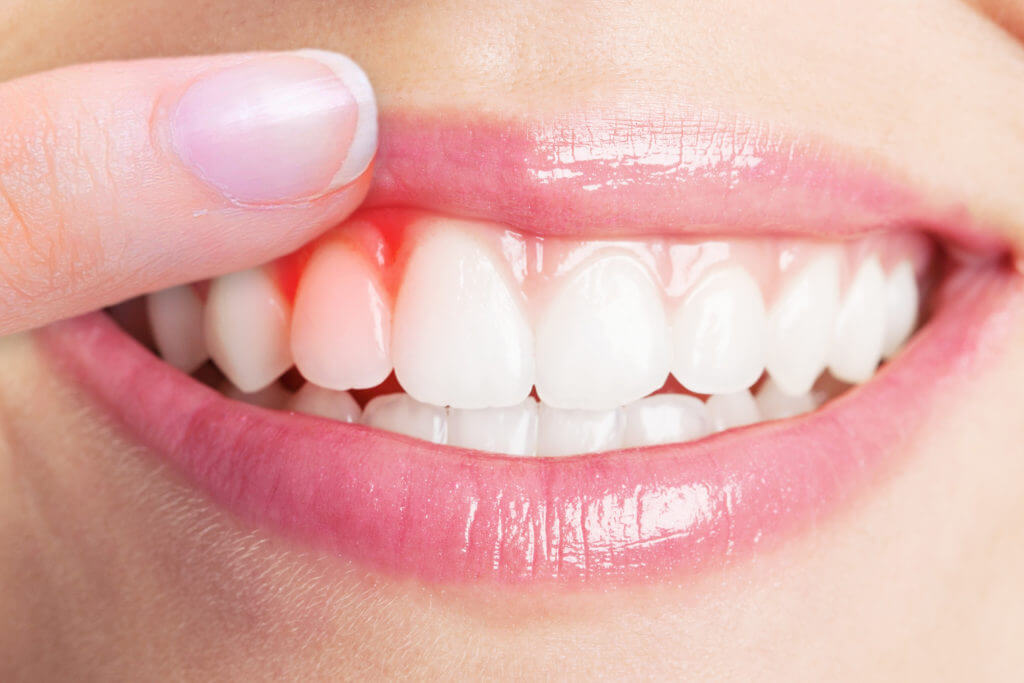Top 5 Vitamins for Gum Health

Have you ever wondered what vitamins from bleeding gums are included in your diet? Proper nutrition is the key to the health of not only the whole body but also teeth and gums in particular. For the oral cavity to be healthy, it’s necessary to receive certain vitamins and important elements from food. The body receives the necessary substances from various foods. It’s not always possible to diversify the menu enough to saturate all cells and tissues with valuable elements. The lack of nutrients weakens the dental and gum tissue, and worsens the condition of the oral cavity. Taking vitamins for healthy gums and teeth is a great solution for people who want to maintain oral health.
Why are Vitamins so Important for Oral Health
Regular brushing, flossing, and mouth rinses are the foundation of good oral hygiene. However, some factors also affect the health of teeth and gums. The use of vitamin complex helps to strengthen teeth, prevent gum disease and improve overall oral health. Did you know that about 90% of people suffer from recurrent or persistent gum disease, as well as other periodontal diseases? In addition to the obvious visit to the dentist and proper oral hygiene, it’s important to take vitamins for periodontal disease. A deficiency of useful elements leads to a weakening of the gum tissue and impairs blood circulation in them, as a result, the teeth become brittle and vulnerable to diseases. There are various diseases of the oral cavity, such as stomatitis, glossitis, and others. The body will signal a lack of nutrients in the teeth with the following manifestations:
- Enamel demineralization - teeth become sensitive and brittle. Often there are chipped teeth;
- The appearance of caries, as a result of a decrease in the protective functions of enamel;
- Drying of the mucous membranes in the oral cavity;
- Inflammation of the gums (gingivitis), bleeding;
- The surface of the enamel loses its healthy shine, and becomes dull and rough;
- The appearance of aphthae (ulcers) on the oral mucosa, their long-term healing;
- Worsening of already existing oral diseases.
As you can see, vitamin deficiencies can significantly affect oral health. Therefore, it’s important to take vitamins for periodontitis on time.
Main Vitamins for Gum Health
Many vitamins and minerals have a beneficial effect on the entire body. But, if you are concerned about the health of the gums and the oral cavity in general, then you should pay attention to the best vitamins for gum health.
Vitamin C
This vitamin is the strongest antioxidant. It will help strengthen the gums and soft tissues in the mouth, protect against gingivitis (gum disease) and prevent loose teeth. This vitamin helps the immune system fight infection and also produces collagen. It’s a key element that is necessary for the formation of blood vessels and tissues that support teeth. With a lack of vitamin C in the body, the gums can become inflamed and bleed.
Sources: citrus, spinach, kale, pineapple, berries
Vitamin A
It’s extremely important for oral health because it helps in the creation of white blood cells, which are used to fight inflammation and infections. This is one of the best vitamins for healthy gums, which strengthens tooth enamel. It promotes the production of saliva, which plays a very important role in cleaning the mouth of bacteria and food particles. Vitamin A deficiency can lead to inflammation of the mucous membrane, loosening of the teeth, dryness, and microtrauma in the oral cavity.
Sources: liver, carrots, pumpkin, asparagus, leafy greens, fish oil
Vitamin K
This is one of the main vitamins for bleeding gums. This element helps block bone-degrading substances and also promotes the production of the protein osteocalcin, which keeps bones and teeth strong. Vitamin K has an anti-inflammatory effect and protects the gums from oxidative damage. In addition, it’s one of the best vitamins for gum recession. Its deficiency can slow down the body's healing process and increase the chance of bleeding.
Sources: green vegetables, carrots, spinach, beef liver, olive oil
Vitamin D
It is an element your body needs for several critical processes, including the functioning of the immune and musculoskeletal systems. Vitamin D is one of the best vitamins for receding gums. It improves gum health by strengthening the body's antibacterial defense systems and reducing inflammation. Vitamin D prevents the development of caries and gum pathologies and increases resistance to viral diseases. It also helps to maintain the structure of the gums and the circular ligament of the teeth, preventing the development of periodontitis and subsequent loss of teeth. Vitamin D deficiency causes burning mouth syndrome, dryness, tooth decay, and a metallic taste.
Sources: fish, egg yolk, milk, cod liver
B Vitamins
These vitamins have a wide spectrum of activity and have a beneficial effect on many processes in the body and on oral health in particular. Vitamin B3 helps prevent stomatitis and bad breath. And vitamins B12 and B2 also help prevent mucosal ulcers. This group of vitamins reduces the risk of chapped lips, tongue inflammation, and gum irritation. The lack of elements from this group can worsen the health of the oral cavity, and cause dryness and microcracks.
Sources: fish, red meat, spinach, legumes, bran, dairy
Sufficient intake of valuable trace elements and vitamins is the key to the normal functioning of the body. The lack of one component quickly affects the density of the gums and the strength of the teeth. To avoid dental problems, it’s important not only to have good oral hygiene but to take the right vitamins for gum disease. Talk to your dentist about your oral health and vitamin supplements that may be helpful. The specialist will give detailed recommendations about the food you need and about possible supplements.

